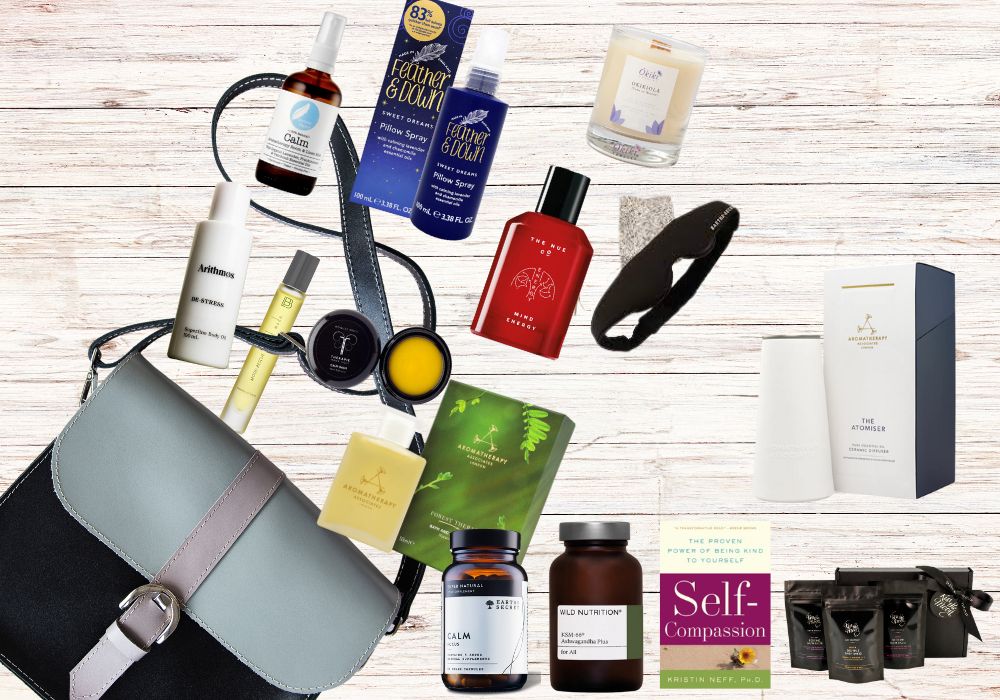Stress and anxiety are something that affects us all in varying degrees, I’m sure we can all agree with that. It makes you feel horrible and is something that is often outside of our control. But we can control how we react and what we do for ourselves to support ourselves during those times.
This week is ‘Mental Health Awareness Week’ and the theme is ‘Anxiety’, something I’m sure many of us have experienced… here are some tools that could help you manage those feelings moving forward.
Let’s talk about anxiety…
Anxiety is often closely associated with stress. Both are emotional responses, but stress is typically caused by an external trigger. The trigger can be short-term, such as a work deadline or a fight with a loved one or long-term, such as being unable to work, discrimination, or chronic illness. People under stress experience mental and physical symptoms, such as irritability, anger, fatigue, muscle pain, digestive troubles, and difficulty sleeping.
Anxiety, on the other hand, is defined by persistent, excessive worries that don’t go away even in the absence of a stressor. However, it does lead to nearly identical set of symptoms as stress: insomnia, difficulty concentrating, fatigue, muscle tension, and irritability.
If you’re feeling any of these – there are coping mechanisms you can put in place to help you manage these feelings, to build up your resilience in the face of them and help you feel more balanced in your everyday life.
Here are some things that you might find useful in bringing you a sense of calm when you’re feeling anxious… These items are designed to support you – both physically and mentally, to help keep you focused and stress levels down. These are not quick fixes and certainly won’t work for everyone, but we hope that some of these help to support you in some way…
Build an evening routine toolkit
One great way to manage your stress is creating a calming evening routine that can help promote a restful sleep. Lack of sleep can affect you in so many ways and can make your anxiety worsen… here are some ways to calm that racing mind and get your body ready to relax and sleep.
First up, we’re big advocates for warm baths in the evening to help get you ready for sleep and to relax your body overall. Not only does the warm water ease the tension that you may have unconsciously built up in your body, but you can also really create a gorgeous atmosphere to relax you using essential oil products designed to calm your mind and body. Oh, and it’s proven that a hot bath 90 minutes before bed can also help you sleep better.
You can also promote sleep through products such as pillow mists and using an eye mask to help you switch off.
If your mind is racing as soon as you get into bed, why not try starting a gratitude journal? Just start by writing a few lines before you go to sleep answering some of the questions from below. Perhaps in one of our Wow Beauty Affirmation Notebooks….
- How are you feeling today?
- What have you achieved?
- What went well?
- What could have gone better?
- What could you have not got through the day without?
- What are you looking forward to?
Use these moments to challenge your thoughts – those negative thoughts. Are those worrying negative thoughts realistic? Can you put anything in action towards this worry? Writing them down can help them from overwhelming you.
You may also find practising meditation and mindfulness as useful tools in your evening (or even morning routines) to get you in a good headspace.
“Mindfulness and meditation can be great tools for easing anxiety. The essence of mindfulness focuses on creating moments of stillness, or moments in which thoughts become more still – and this can be a great strategy for dealing with aspects of anxiety like racing thoughts, overanalysis or emotional reactivity. A simple mindfulness practice might involve finding a comfortable place to sit, closing your eyes (or ‘unfocusing’ your gaze), and bringing your attention to your breath. As thoughts cross your mind, see if you can observe them, without judgment or overanalysis. Then, if you can, try to release each thought so that your attention returns again to your breath. You can practice in this way for as long as feels appropriate (15 minutes is great, although you can certainly do longer!), and then slowly return to your day.
Over time, a mindfulness practice might help to open up a space between action (the things that happen to us) and reaction (the way we respond to the things that happen to us). This can enable us to find more clarity, focus and intentionality in the way we move through the world, enabling us to feel a lessened sense of anxiety and a deeper sense of calm and presence,” says Eloise Skinner, psychotherapist and author.
Here are some great breathwork and body scan videos from Wellness Consultant Tracy Richardson:
For your Space
Make your space your sanctuary – it can make all the difference to your wellbeing if you feel calm and safe in your environment. Create your calm space with some of these goodies…
When you’re on the go
Need something for on the go when you need a little extra support? Here’s some of our essentials…
Support yourself daily with these…
Sometimes, you need more support than just these tools, sometimes when you need a break, it could be time for a mental health day or perhaps you need to assess what you can do to ease any pressure, whether that’s at work or home. Feelings of anxiety is normal, but if you’re struggling to cope or it’s affecting your everyday life, please reach out to a mental health professional.























Leave A Comment